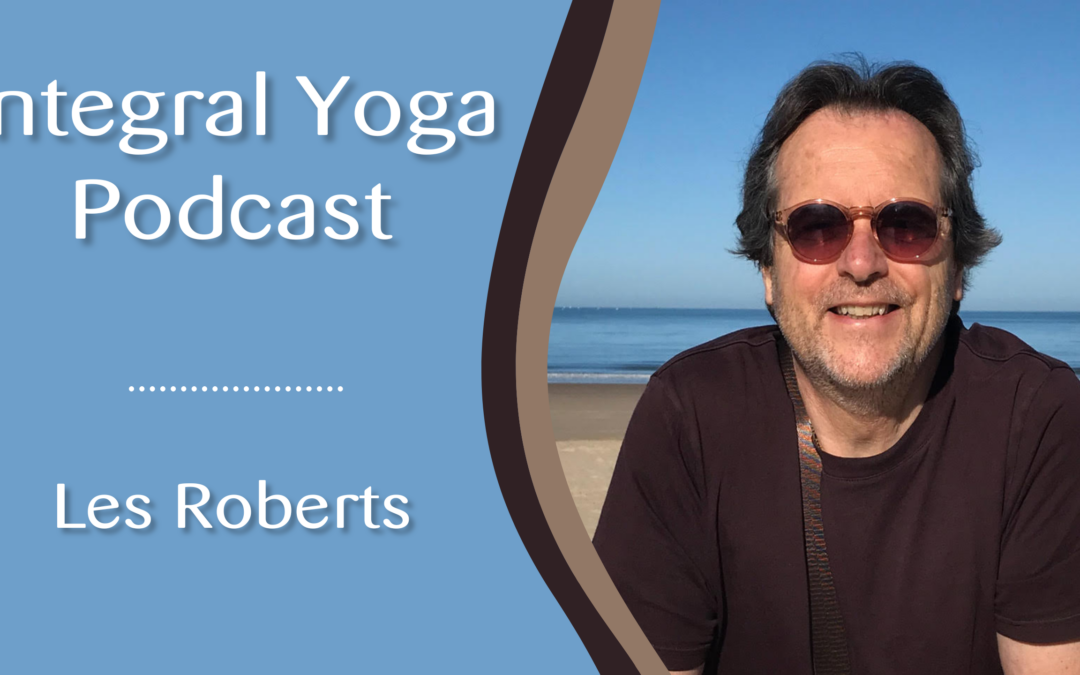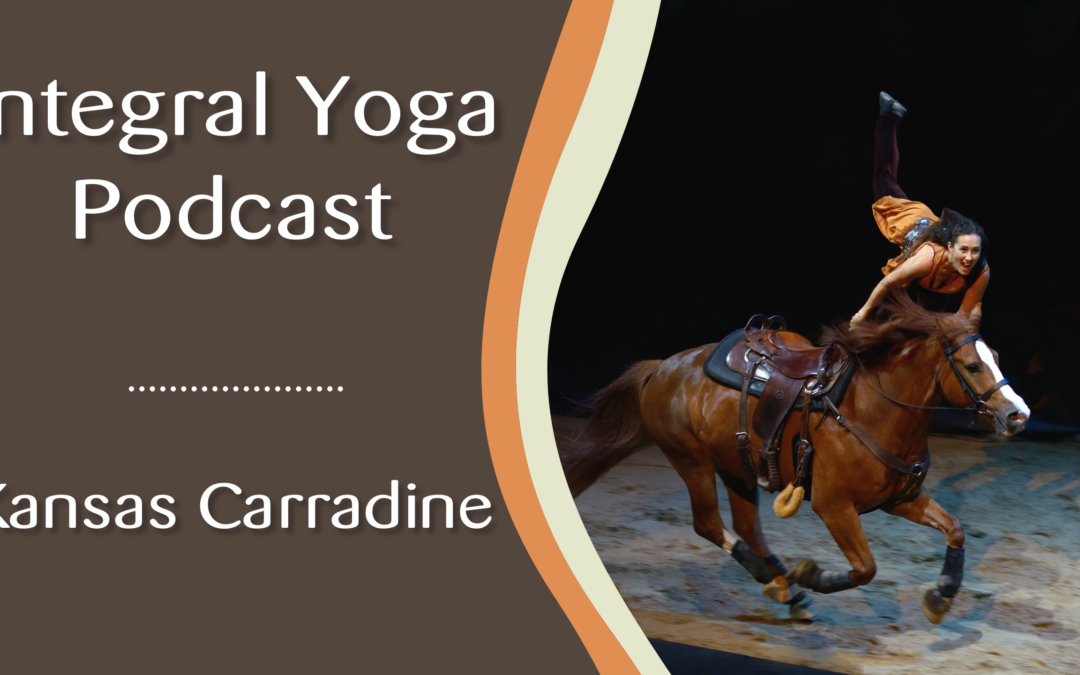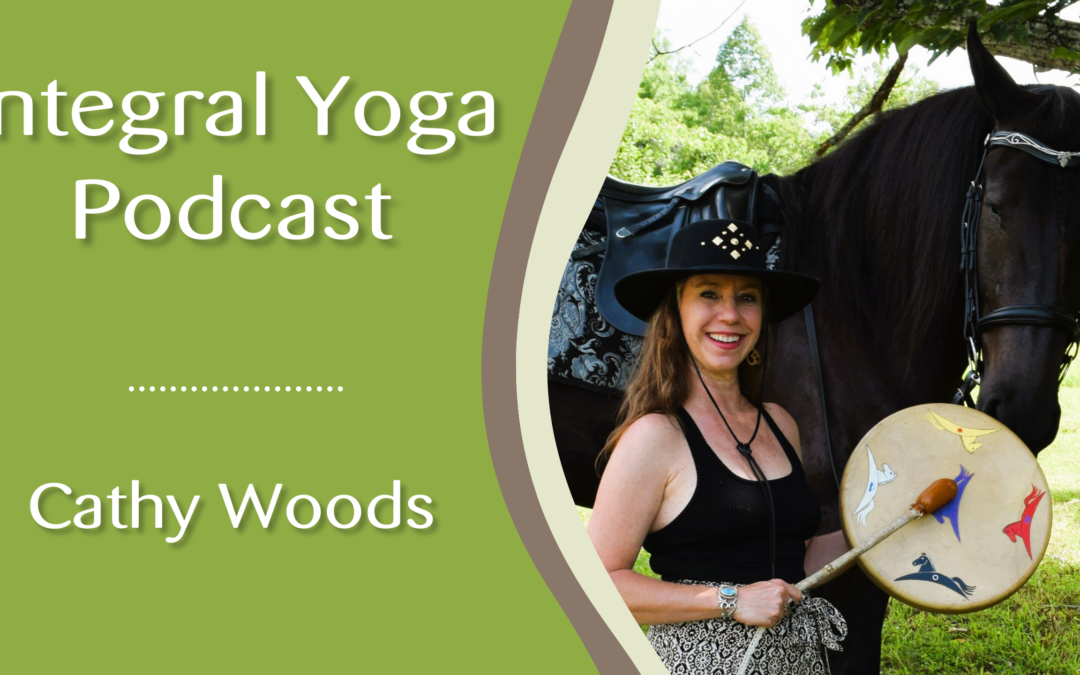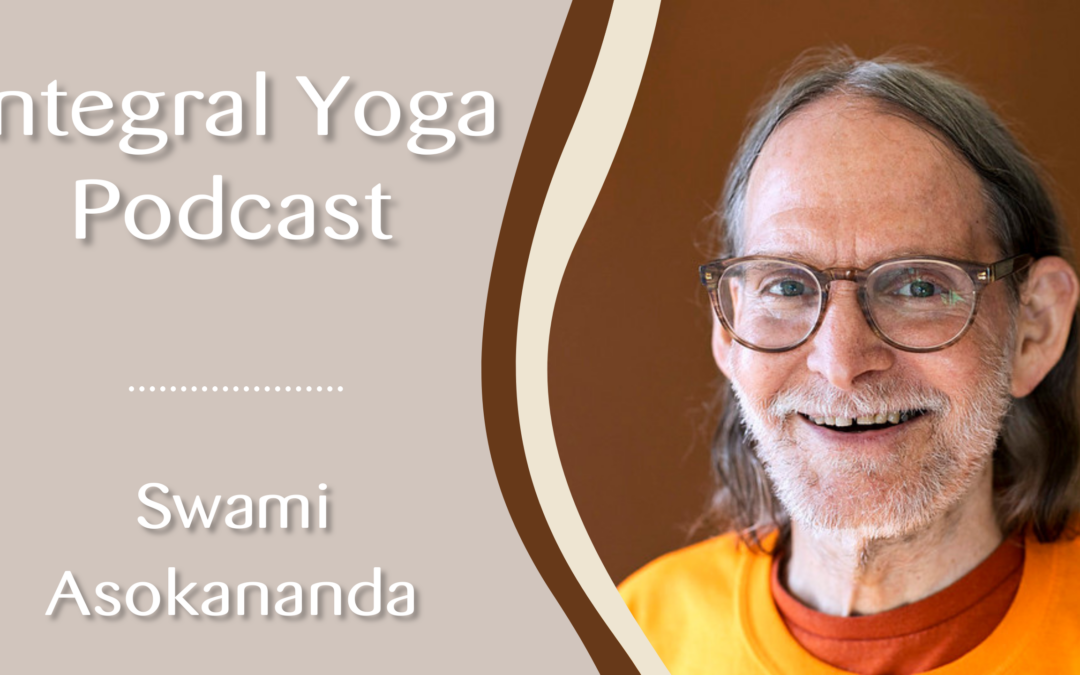Luciana Prakash 0:00
better person, a better teacher, a better practitioner a better there's a better that
Avi 0:07
more and more amazed at the power of sanga the power of community
Luciana Prakash 0:11
violent? Yes I am, we are when I started being gentler with me, it all changed. And I love it. I always try to remind myself to respect other choices, we have the power,
Avi 0:28
we have the power right Hello and welcome. So happy to be joined by my good friend shiana Prakash today a little bit about Prakash. She has been an integral yoga teacher since 2007. She graduated at Jai vitta integral yoga center in Brazil, and she is now one of its directors. In 2015. She was approved as an integral yoga teacher trainer, and since then has trained hundreds of people in this amazing lineage. She's passionate about Yama, Yama, on how to apply yoga to everyday real life. She has found true joy in sharing it in simple and practical ways. supporting people in different conditions have yoga as a tool for happy life. Together with her husband, Mitra, she has found a YouTube channel yoga paralyse one of the biggest portals in Brazil delivering free yoga and meditation information and practices, fulfilling a dream of taking yoga everywhere and offering it to whoever wants or needs it. So Prakash, thank you so much for being here today.
Luciana Prakash 1:45
Hi, Avi, thank you very much for the invitation. Hi, everyone. Thanks for being here with us, it's a pleasure to talk to you and to everyone who's listening.
Avi 1:57
So hope you don't mind but I want to jump in with what we were talking about before which is just like nervousness is like when we feel nervous about something. And if yoga can even be practiced in those moments. You're Why do you think we feel what do we feel nervous about? And when you feel nervous? What's something that can help you in those moments?
Luciana Prakash 2:21
Okay, well it's specifically about these situations when we have to talk to public you know, in on teaching to a public that maybe don't really know me, I do feel nervous. This is something very, that I am very aware of, and I think I know the reasons I mean I have this, this I've always had this need to be perfect you know, to to just do my job or to talk as best as I can to share as best as I can. And of course that has a very strong impact on me in the emotions and everything. And I also it also I also think that it comes from a lack of confidence that I had to deal with my entire life and that when I finally found yoga, it helped me a lot first really accepting this you know, I recognize I have this with me and I am able to face it and still do whatever I need to do I mean it's here it's happening I feel nervous but I'm still doing what I am supposed to do what I want to do what the way I want to share the way I want to you know serve people and serve life in general so it doesn't stop me and yoga really helped me with that with the acceptance of this of who I am in this shell in this body in this mind it's okay it's not really that I need to change any of this I can accept and work with it you know, and I can still do my best and and still share I guess and still serve even though I have this so the first point was like acceptance and second yoga brought me a lot of tools to to deal with it. I am nervous that I feel anxious sometimes or whenever I'm scared of something I still I do have tools Yoga has a lot of different tools that can help us with that. So right now right before I entered this room here to talk to you right now, I just went and sat down, did some pranayamas did a little meditation. And the fact is that with that, you know with the breathing exercises, I did a little bit of Nadi suit For you, maybe not everybody listening to us knows what not is Saudis, the alternate nostril breath that helps to calm down and still be alert, I'm still aware of everything, but I am calm, and I do feel what I'm feeling. You know, I do feel that right now I am in this condition, with my, my, my heart is a little accelerated and all of that, but I am totally aware of it. And it's good, and I can calm it down and still sit here and do what I am, you know, supposed to do in a way that the what I would like to do serving you this in this way. So it's, it's amazing not only for the tools that it offers, but most importantly, to me, at least in my, in my experience, to work with acceptance, to work, understanding the reality of this human body of this mind and this ego that I carry with me, and it's okay, I can work with that. I am not that I am not my body. I am not the mind, I am beyond that. But I do have it here. So how do I deal with it? and still be in this world serving the way I need to? So I guess that's it.
Avi 6:31
Good answer. very comprehensive. Yeah, there's so many, so many things I want to ask you from that the acceptance is, is such a big one, right? Like, I could say for myself, you know, there was many years that I was not accepting of myself, it was always trying to do trying to prove something to someone else. And this this idea of, of accepting myself and the situation, whatever thing is, it's so liberating, isn't it?
Luciana Prakash 7:07
It is, it's amazing. And Yoga has done such a beautiful job for me with that, because I think I'm sure I'm not the only one and neither are you. I think a lot of us grow up with this sense of not being good enough. And you know, even when I started, understand I mean study and practicing yoga. For a while there, it even made things worse, because the more I studied, and the more I understood about yamas and yamas, more, I wanted to be better and better and better, a better person, a better teacher, a better practitioner a better, there's a better that, you know, until it really hit me it's not about being really perfect in this human body and mind. It's a process of really acting in a better way, developing it ourselves and just, but not not in a perfect way. It's not a sort of constant search, or it shouldn't be a constant search for perfection, because we are good enough already. And that was really something really, really strong that yoga taught me I am good enough already. There is nothing so bad in me that I need desperately to change. There is nothing in my personality in this human body mind that I occupy right now. There is nothing that needs to that so awful, so hurtful that needs to disappear. So it made it really count me down and really brought peace to my heart, still leaving a lot of room for development, for growth, for learning new things and new ways to cope with myself and to deal with other people deal with situations but not any more from this place of lack this place of not being good enough, you know, and it always started when I went to India in 2000. And I think was 2011 2000 Yeah, 2011. And I came back I was doing I have a therapist, and I did everything you can possibly imagine in India, I was really out there just throwing myself in everything that I found in India, all kinds of practices. I did everything. I was really opened it with that idea that I would come out of that experience a better person. And in fact I did but not the way I thought you know. I just thought I had a lot of stuff to work on and to change to eradicate, and so on. So when I came back I was I went to my therapist, and I was so proud of myself telling her every crazy stuff that I had done there. And you know, and she was very passive looking at me like, you did that, really. And then at some point, she said, a phrase that never again, left my mind in my heart. She looked right into my eyes and said, Yeah, I'm here wondering, what is so wrong with you, that you need to do all that stuff to prove wrong, to prove yourself different, something like that. And I was like, Huh, oh my god, she's so right. There is nothing so bad with me that needs to really be completely destroyed and reburn rebuilt. And that's how I felt when I came back from India really a new person. And it wasn't a new person, it was the me that was already there, just a better version, just a better side of my side of myself that was there the whole time. Nothing that I really invented about myself, not a new one that I put together, you know, the while I was there. So that was a really amazing turning point to me. And acceptance became the word that I define yoga by, you know, for me, yoga is all about acceptance, accepting who you are accepting life as it is, accepting other people as they are at that moment. And it was a beautiful process process in that in that way.
Avi 11:54
It's never ending, right? That's how it feels for me like this. The acceptance, all the time, is rubbing up against this old like, survival mentality that something needs to be fixed, or something needs to be changed and, and so it's constantly I noticed in myself, it's like, okay, the fear, fear comes up, I need to do something, I need to change something, I need to figure something out. And then it's like, okay, you know, it's, it's, it's all perfect some way I just accepted, you know, this, this balance between these places, I think is, is yoga, I find. Yeah, you know, another word that comes to me, too, is like, regular, it might not sound good to feel regular. You don't feel like okay, I'm a regular person, at least, you know, in the state so hot. Like, that's not what you don't want to be just regular, you want to be extraordinary, you know, but I found like, so much comfort, and just like, Oh, I'm just a regular human being, like what's going on inside of me. That's, it's not the first time that this has happened, that someone's gone through that. And when when you study, you know, the saints and the sages, you understand that to when they're describing so wonderfully, like the internal state and the struggles that we that we go through, it's like, oh, okay, so I find it's like, we're all unique, which is beautiful, like no one else has ever been exactly like you Prakash. But at the same time, right, like, we are regular to write
Luciana Prakash 13:31
we are regular, yes, that for a long time, I kind of like, fought with the idea of being irregular, not really only because of the of this idea of being better, but also regular just sounded so, so simple, right? It sounds it sounds simple, sometimes then, and regular means that all of us are regulars. And here in Brazil, we have, we have a very it is an amazing yoga teacher, he is not his name is a homogenous, Professor homogenous. And he is very famous and he he uses another a word that correlates to regular in Portuguese, but it's not Mao normal. So and he, he always talks about this being regular or being normal. As just everybody in the society and now and we that are regular, we just have the same good and bad qualities we have. We all have difficulties in life. We all have a crazy mind. We are also influenced by media and all of that. So for a while, they're just being regular was something that I did not want to be. I wanted something different from that. But at the same time when I started going deeper in yoga I just wanted to be more and more regular and that's what I found peace I found pacing this it I am regular and I'm okay being regular. It's, it's amazing enough, it's good enough.
Avi 15:29
Because I think the other word that comes up with this for me is loneliness. Right? It's like when I feel this way, regular normal in a way, I, I realized that I'm more of that I'm connected. Right? So the the part of the, you know, what's going on inside me? What's, what's wrong with me type of thing. All of that is connected to loneliness, which I find to be one of the most painful experiences of life is feeling, feeling lonely? and wondering, you know, is there something wrong with me. So this is great power is like an antidote for that.
Luciana Prakash 16:05
It is, and especially when you find your people, right? When you find your regular regularity, you find your people, you find your sungha, you find a group of people that kind of think the same way as you do, or at least we are looking and searching for the same thing kind of things. And when I started to really find in yoga, the group that I wanted to be with this the Sangha that I wanted to be with the this feeling of loneliness really changed. I am I am happy, being irregular. And in the moment that I do feel, for some reason, this feeling of loneliness, of being different, or being whatever, that's not fitting Well, at that moment. I remember Sangha and you know, this is a very, very strong tool for us to use. We, some of us in this yoga path, don't really even recognize the strength of Sangha, the importance of Sangha, the importance of people, like minded, you know, around of us, around us just to really help in the moments where we forget about the unity, right? When we forget about who we really are, the essence that we are, and having Sangha having like minded people around, it's, it really helped me a lot in all these years, trying to dive deeper in yoga, in my own yoga practice.
Avi 17:58
Thank you for saying that. I'm constantly more and more amazed at the power of Sanga, the power of community. No, I just, I feel that we are social, social beings, we're social creatures, and what people are doing around us is really going to have a big influence. And want to ask about like your, like, self care food for you. You know, like, I don't know, it was also a big change in me when I saw that almost, it's my job to take care of Avi. And it's your job to take care of Prakash. And then by doing that, to see what what, how can I do that? Right? How can you take care of Prakash and one of the ways is finding the Sangha that you're talking about seeing like oh, like, I need to be connected and supported, and be surrounded by other people who are a good influence on me seeing it like that gave me the motivation, right to maybe make changes because you have relationships with people and then maybe they're not serving you so much, you don't feel like it's the best example. So you have to move to a new Sangha, which is a really hard thing to find a new Sangha. Did you have any kind of experience like that, you know, finding the sound good now which is jivi to an integral yoga?
Luciana Prakash 19:18
Yeah, Yes, I did. Well, it. The whole thing about Sangha, for me was another amazing process because I am not very like the very this the stereotype of a yogi, of a yogi of a yoga practitioner, you know, at least I'm sure in United States, there is also this stereotype of a yoga practitioner, but here in Brazil with something at least when I started taking Yoga 1718 years ago, it was stronger than it is today. The most people that I knew of who practiced yoga back then, you know, were the kind of like the same people, you know, the very calm people, the very alternative people. And it was something very, very strong, almost like related to the hippie type, a stereotype, you know. And I was never really that stereotype. And when I started practicing yoga and taking it seriously, I really had a hard time fitting in. And I already had my first daughter when I started practicing. And most of my colleagues in hatha class and even in my, my first teacher training, the first VTT, I took they were all very young, I was young also. But I was a young mother, married already, you know, in most of them were just just young, without the rest of the package. And I really had a hard time fitting in not only because I did not consider myself the yogi type, but because I had a very, again, regular common life. I was married with kid with one kid, I was just really having to while my friends were practicing yoga, I was making lunch and dinner, you know, and taking care of three actually live there was two year old back then. So it was a completely different situation than what I thought was ideal. That the idea of a yogi, of a yoga practitioner, it was really something in my mind that I created, nobody made me think like that. But it was something that I believed, so I had a hard time fitting in, I kind of looked at those at my friends, the yoga group, the yoga Sangha, that there was back then, as like very strange people that I could never be like, because I had a totally different life, I had a daughter and a house to take care of. And even though I really wanted to go out and practice yoga all the time and do one hour meditation, and plus to our hatha class, and then another satsang, at the end of the day, and maybe a retreat at the weekend, I couldn't, and so I i had i did not find Sangha back then it wasn't until much later, when I found jivi the when I actually started working at jivi, the in serving HIV then I became one of the directors there, I actually found some that Sangha, because there, I could find regular people like me with regular life, practicing yoga, and it was a completely different surrounding for me, it was very warming to find these people that just had that everyday life, just like I did, but wanted to really go deep in yoga. And it was amazing at this at the same time, I I met my my nowadays, my husband nowadays, Mitra, he was a yoga teacher at ivisa as well. And I made a lot of new friends that really are like my,
my really special Sangha is with a very deep special connection, and it changed everything to me. Now I am now I feel after finding this Sangha, I feel a lot more rooted in the yoga even though I have the my life can be whatever way it is. But I am rooted in yoga and with the help with the support of the Sangha, that supports my life whatever way it is, you know, I didn't have to make amends in my life. I didn't have to change my, my way of living to be part of the Sangha. I feel accepted as I am. And it's awesome it really the the power of an accepting Sangha was something that really changed my connection with yoga made me go deeper, made me find a partner in yoga, and that also helped, I mean, changed my personal life completely. And now I understand that with all this family life that I have now I have another kid right? So I have already two kids and I'm expecting the third as you know, it. And I still find ways with the even though if even though I have a little time, but I find ways to take care of myself, I find ways to make time for myself to make time to make quiet time for myself silent time, my practice time, my studying time and the end Sangha time even, it was something amazing i don't know maybe it I mean not maybe I'm sure it also helped happen to you they're everywhere I think to all the people to people everywhere in the world, but this to this year and a half with COVID pandemic. We were not seeing each other live right present. But I felt that sunga was life Savior. This this year and a half, even though we were not present. See in touching each other, we talked a lot more, we supported us. We supported each other a lot more from zoom with zoom or WhatsApp, whatever it was, but we made ourselves available more available. Knowing that it was a very special situation that we acquired even more present quality time from friendship from family members. So it was amazing to have this special Sangha like minded people, in this process of the pandemic, it was really amazing.
Avi 26:38
It's interesting that in challenging times, especially the the need to have community like, are like living in community having that general makes me feel so much more secure, than if I'm on my own and don't don't have anyone else. So it's, it's very, very practical. And it's an odd thing almost to think that we can do things completely by ourselves because we are so connected and reliant on everyone else and what's our environment, everything so just to embrace that's the reality here and kind of Nestle Nestle yourself into a community if you can find it is wonderful. And it again, it becomes obvious in the past year and a half so many people I think have have connected in ways that you're talking about, just out of a basic need. Oh, yeah,
Luciana Prakash 27:29
absolutely. And look what we've done with within the integral yoga, big community right we were able to pull this out to pull something out as big as an international conference right a global conference. And it was an amazing event it was so powerful soul transforming to have people from all over the world available and wanting to be together each one in their houses with each of us in our own houses. But really wanting this connection wanting to, to drink from this power from this energy of the of the of the yoga Sangha, it was amazing. It was such a strong support again, and I don't know maybe in regular times, if we were not in such a special situation, maybe we wouldn't have been able to put it together. So something to be grateful.
Avi 28:36
When you were to go back to something that you brought up, about your impression of yoga, before you started practicing what you thought a yogi should be and maybe even that impression that you had was a barrier for a while to beginning to become it yourself. She thought Oh, that's not for me. Right? And I think this is such a common tendency. Many people that hear the word yoga they hear the word meditation and we just we're human beings we do this we think we know before we actually know right? Like we Why do we do that like instead of just saying like no I know nothing about that. I have no idea what it is instead we'd like to for dead like we know it's something is when we have like no information about it at all. We saw like one TV thing or post or whatever it is we Oh, I know that's that that's not me. We have no idea.
Luciana Prakash 29:36
One Instagram picture and it's already enough for me to know what Yoga is right.
Avi 29:44
So what I'm curious about is if like, you meet people who maybe have not begun to practice yoga, right are in this place where they feel that okay, this is not appropriate for me. I'm not this type of person that would practice Then I would practice yoga or meditation. Have you had any of those conversations? And you know how to kind of open that gateway you know and that maybe even you can remember for yourself like what what changed to allow you to take that that first step in a new direction
Luciana Prakash 30:19
okay well I've had this conversation I think probably a million of times and I found in my own experience and in all these years teaching you're teaching yoga and giving trainings now right on yoga I met a lot of people who had the same conflict inside and first of all, I I always tell them you know, try to remember what attracted you to to yoga the first time what was that pull what what was that thing that really made you want to look for yoga what what started startle started well, what initiated your search for yoga What made you go there and Google yoga where to practice and all kinds of yoga what brought you there remember that because if you if you came to a yoga class you probably had an a nice day I mean something initiated in you What was that? And I came to understand after a while that it's okay it maybe it wasn't a such a strong pool maybe it wasn't something so so deep as it was for me and as it is, in many cases, but if you remember if you have in mind why you first went to yoga why you first looked for a yoga class and what really begin to make you want to practice yoga. Maybe you have an answer there and maybe you will have a very strong tool there every time you think it's not for you remember what brought you here. Remember what initiated this whole thing in you and stick to it. It stick to the idea of what you want to bring to your life with yoga. And every time you feel like giving up because you don't think it's for you just really go back there and read again that statement remit remind yourself what was this first? This free, really, you know, you know what
Avi 32:54
I mean? What seed that was planted? Like the first Yeah,
Luciana Prakash 32:57
exactly. This seed, what was the seed for you. And that helped, that helped me a lot and have a lot of students that I know, to really stick to it. Really keep going. And honestly, at the end, I think yoga also has to the I mean the yoga community and the yoga teachings when teachers I think we also need to bring yoga down to earth you know, to serve at the level of all the students and this is something that Mitra and I and I know that all the teachers that IV The integral yoga with we work hard to really make yoga available to everyone as they are because really people look for yoga for different reasons. And people in thank God, you know, we are plural we are, there's this huge diversity in our humanity, right? So to try to fit everyone in the same kind of things, it won't work. So we have to go from the way I understand we have to make yoga available to everyone in every style of of every kind of person, let's let's put it that way for lack of a better word, right now in English, and that helps also not trying to fit everybody in the same model box of a yoga practitioner, you know, and that helped out that helps a lot to for the students to understand that. They don't need to fit in this or that way. They just need to know what they want with yoga. What was the seed? what they are looking for, and how can you Help them to achieve that, that they first thought that yoga could do, you know. So that's, that's mostly what I ended up coming up to, with my students and even in talks with my husband and friends and Sangha. It comes down to it at the end,
Avi 35:21
you know, I think it's back to acceptance raised to feel to feel accepted and to, you know, find the Sangha, that, that's, that's perhaps what we're what we're doing, you know, and if people feel accepted, then that's a that's a game changer. No, yeah.
Luciana Prakash 35:39
Yes. And I also think that the the media surrounding Yoga is finally understanding this, because Yoga has always been, I mean, not always, because we know the background of yoga, may not have always been like that. But Yoga has a potential to really support anyone's life to really, it can be practiced by everyone in any condition. And the past couple of years, I see the the media around yoga, really adapting this, and we are, we are seeing so many beautiful movements towards the diversity in within yoga, you know, all the the accessibility within yoga. And so now it's not only, let's say divided in in little groups, here and there, but it's everywhere. And the media is really treating yoga through these lenses, at least, I believe most. Most of people are trying to, to do that to really show yoga in a lot more assessable way and that helps as well. Not only the practitioners, not only the acceptance that we have to develop ourselves, but the way we sell the way we market Yoga is also changing, comprehending understanding this understanding the need to show clearly that Yoga is for everyone that Yoga is for every body and accepting any condition. So that also I think it's a it's a big, big change change.
Avi 37:36
Makes me think of schools too, right? If children just grow up, and this is a part of their education, is doing these practices like that would change everything. Everyone gets to experience it, and hopefully see the benefit of it, you know? Yeah,
Luciana Prakash 37:50
absolutely.
Avi 37:53
Ah, I know that you're passionate about Yama, Yama, and is even behind you, you have some wondering if there's one in particular, that like resonates strongly for you, either, you know, across time, or maybe even just just now more presently, that you've been working with?
Luciana Prakash 38:11
Yeah, well, I am really, I totally love yamas and yamas. And I remember when I first read the yamas, and yamas, it sounded so easy, right? I remember the feeling of like, Oh, this is just so basic. I Hamsa I don't kill anyone. I've never killed anyone. So I'm good with that. But then, after I started going deeper, and see all the layers of all the commas and yamas. And I understood that actually, it might be the hardest part of the whole yoga philosophy, right? And it's not by any chance that it's right there, you know, the first step of the eight steps of the Patanjali Yoga Sutras. So it is something that really kind of like relief marks my pass on on yoga. It's something that I try to remember all the time that I try to apply all the time. And I've never really thought Oh, if there is one or more there are stronger to me, but I will have to just say that. The first one Ahimsa was one that actually really struck me. When I understood the violence within myself within me within the way I react to live the way I react to people to situations because I remember clearly having this first thought, I've never killed anyone, and I don't go around. hitting people out there. So I'm good in a hamster. But how about the way I relate to how about the way I talk to people? How about the way I respond to difficult situations, and that's when I came to understand that the huge amount of violence and not only violence, but the huge amount of pain that I've had have gone through my entire life, that made me become the violent person that I was in this subtle, more subtle ways. And it was really like the first thread to all the other ones to really understand the other yamas and niyamas. In in a much more subtle way. But it all began to me with the understanding of how violent my life had been, until discovering this path. And even now even nowadays, sometimes when I'm, you know, dealing with my husband, and dealing with the, with the kids and all of that sometimes harsh words comes out of my mind. And I really go back there to that first thought that I was not violent. Yes, I am. We are, it's part of our humanity. Right. So it was I think I would say today it's, it's probably the first the strongest one for me, it's something that I have to work on myself all the time that I go back to this inherent violent way to respond to life and I think I will still be working with that a lot.







